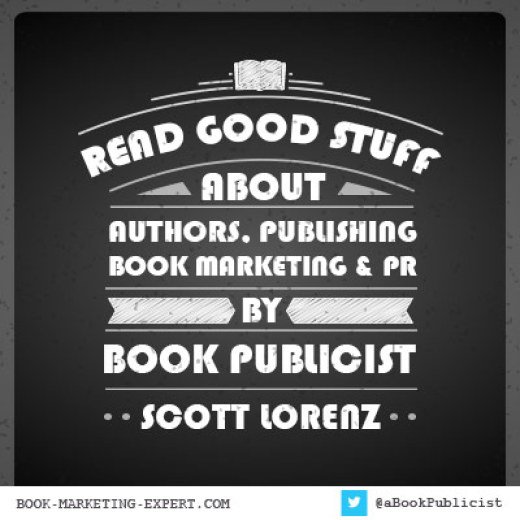5 Writing-Related Jobs for Authors: What to Do While Working on Your Book by Thao Nguyen
 Let’s welcome back monthly columnist Thao Nguyen as she shares with us “5 Writing-Related Jobs for Authors: What to Do While Working on Your Book.” Enjoy!
Let’s welcome back monthly columnist Thao Nguyen as she shares with us “5 Writing-Related Jobs for Authors: What to Do While Working on Your Book.” Enjoy!
***
Being an author is like a long investment.
It takes time to write your manuscript, edit it, and then submit it to publishers— or polish the book and self-publish it.
And while you probably want to put all of your time toward this project, it’s simply not affordable to write and work only with the hopes of reaping the rewards years later.
Luckily, there are jobs out there that come with a flexible schedule and also let you further hone your writerly skills while earning you some extra income.
Here Are Five Popular Options For You To Consider
Proofreading
One of the best side hustles for writers and word lovers is proofreading.
The job requires a good grasp on grammar and text formatting, as well as an exceptional eye for detail, but it’s often faster to do than other kinds of editing.
This is because a proofreader provides the final check of a text only, and is responsible for fixing any mistakes that slipped past previous editors, rather than making major changes.
Like all of the jobs mentioned in this post, proofreading is flexible — most proofreaders are hired on a freelance basis.
If you’re just starting out, you might want to focus on getting a lot of customers, and you may work more regularly.
Once you’ve established a client base or a reputation in the field, you have more liberty to choose your projects and organize your schedule to allow plenty of time to write your own book.
Flexibility also applies to the type of project you work on.
If you’re up for long-form content (which can be quite enjoyable since it’s not so different from reading), then book proofreading is a good choice.
If not, you can proofread shorter pieces like blog content, leaflets, website copy, CVs — just about any kind of text, really.
If this sounds like something you want to do, check out this post I wrote a while back about what it’s like to be a proofreader.
Editing
If you want to dive deeper into pieces of writing than you would while proofreading and give advice on story structure or writing style, then you might enjoy being an editor.
Editing jobs come in many shapes and sizes — not only are the types of content you can work on diverse, but you can also focus on a specific type of editing.
For instance, if you enjoy looking at the plot, structure, or theme of a text, you can become a development editor.
If you like to work on the language of writing more, then you might want to go for the copy editor path.
While qualifications are not required, studying for an editing certificate can be beneficial.
A certificate can assure authors that you can provide good editing services, and in studying for it you get to learn technical things about the writing craft you might not have known before.
This not only helps you become a better editor, it can also improve your own work!
That said, since you will be editing for someone else, it is important while working as an editor to drop your writer persona to focus on your client’s goals, intentions, and style.
Make sure to give suggestions that suit them and their project, not your personal preferences.
Copywriting
For those who are not yet weary of writing and are in fact looking forward to more of it, perhaps you’d like to switch things up with a bit of copywriting.
Copywriters work on a variety of material, from web content to brochures to emails — basically anything that can be used for marketing purposes.
These types of content are much shorter, which means that can be a refreshing break from your book. You still have to think of structure and flow as you would with long-form content, but it’s much less likely to cause headaches than having to figure out plot points.
Style-wise, you would probably work with something more eye-catching and conversational than what you’d use in novels.
Copywriting also involves shorter sentences, simpler words, and sometimes keyword-based writing. But these standards are not very hard to adapt to, and they can be fun to work with in between novel writing sessions.
Who knows, they might earn you a way out of writer’s block alongside some extra money!
Blogging
Want to work for yourself and not for a client?
Why not create your own blog? Simply adding a page to your author website could allow you to build your brand while working on this side gig.
You can earn money by letting advertisers run ads on your blog, or by becoming an affiliate for companies or organizations.
You will have to take some time to build your blog’s audience if you decide to take this route.
The greater your audience, the more impressions you can offer advertisers, and the more money you can make.
Picking a theme for your blog is a good first step, so that you have a specific audience to target — it’s much easier to build your following that way– especially if you know a bit of SEO.
This is similar to how you’re more likely to succeed when marketing your book to a specific target audience, rather than saying everyone will enjoy it.
Focus on something you care about, or know a lot about– like writing books, for example, and start researching to see what topics within that theme appeals to readers.
You can share your blog with your existing readers as well, through social media or an announcement to your mailing list.
Translating
This final one might not apply to everyone, but if you know another language in addition to English, translating could be a fun side hustle to have.
Again, you have a lot of choices when it comes to material — you can translate articles, communications, or even books.
If you choose to work on literary translations, you will get a lot of room to ruminate on words in both languages and how they can conjure such specific images or feelings in certain situations.
It’s a beautiful process that can help you gain an even more nuanced understanding of both languages, which can only enrich you as a writer.
You might want to practice your translation on your own first, just to get used to the work and brush up on your skills.
Then, you can keep tabs on freelancing sites, online agencies, or even local companies that work in more than one language — you never know who might need some translating.
Hopefully, this list has given you some inspiration for a part-time job to take on while working on your book. Good luck!
***
Want to read more articles like this one Writer’s Fun Zone? Subscribe here.
***
ABOUT THE AUTHOR
 Thao Nguyen writes about history, diasporic experiences, and writing. You can find her work in Literally Stories, Anak Sastra, or on Twitter @thao__to
Thao Nguyen writes about history, diasporic experiences, and writing. You can find her work in Literally Stories, Anak Sastra, or on Twitter @thao__to
***
Editor’s Note: Resources for developing your story and your characters so that you have diversity in your writing:
- Plan Your Novel course: https://school.bethbarany.com/p/30daywc
- Craft Compelling Characters: http://school.bethbarany.com/courses/enrolled/compelling-characters
Also by Thao Nguyen
https://writersfunzone.com/blog/2021/09/28/3-ways-to-identify-a-publishing-scam-by-thao-nguyen






